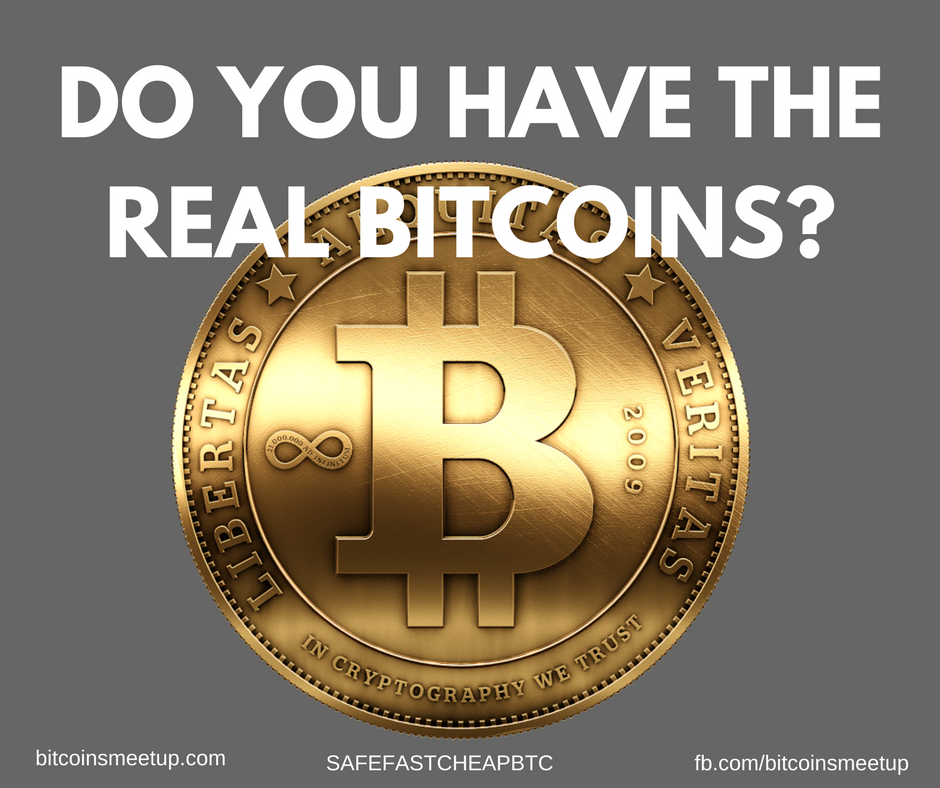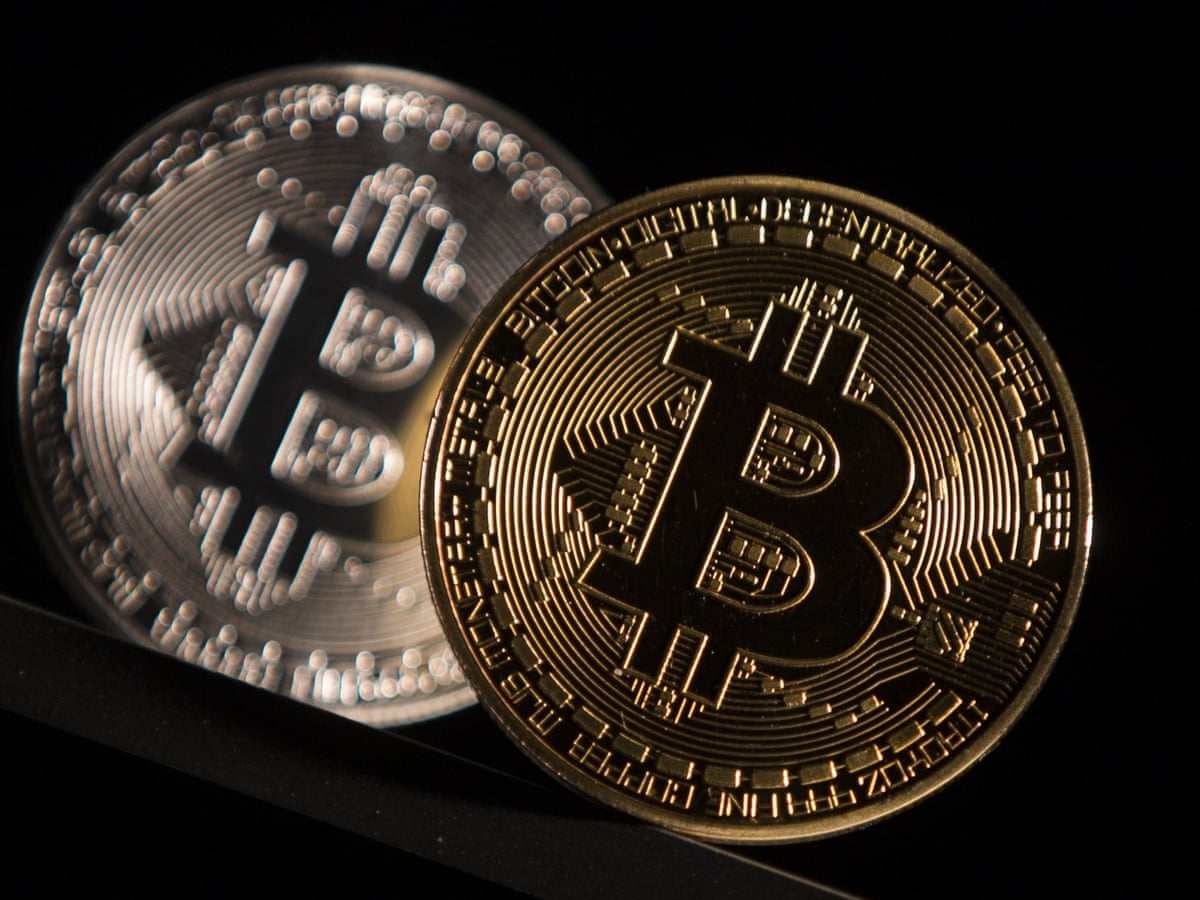How do i know if a bitcoin is real
Contents:
You can download malware by clicking links in your email. You can also download it from websites and social media. There might be a post, for example, where someone claims a certain program allows you to mine bitcoins for free. Download it, and you could get malware. If you're not sure of a website or email's legitimacy, contact the company involved directly. If you can't find the company's contact information easily on social media or on its website, that's a red flag.
Pump-and-dumps have been around as long as the stock market has. A group of scam artists will get together and buy up a bunch of penny stocks. This drives the price of those stocks higher, and on the back of these rising prices, they get outsiders to invest in the stock—using big promises of easy money. Unfortunately, new technology has made Bitcoin a target for pump-and-dump scams, something that investors can fall for even if they would never fall for a traditional scheme like this.
Often these schemes are promoted with the use of fake news stories and fake celebrity endorsements. If a person ends up getting caught up in this, it can lead to financial ruin—unless you know how to spot a scam and invest somewhere else instead.

You can protect yourself by avoiding single tip purchasing and knowing when something sounds too good to be true. This particular scam has become such a big concern that the U. Commodity Futures Trading Commission has issued a guide that is designed to help investors be aware of the potential risks of cryptocurrency like Bitcoin.
Bitcoin is a volatile enough investment as it is. Stay alert for potential Bitcoin fraudsters and trust your instincts. If something seems too good to be true, it probably is.

Department of Justice. Part of. Investing in Bitcoin.
- How To Spot A Bitcoin Scam.
- Account Options.
- where to buy miner bitcoin.
- Bitcoin price is volatile.
- Cars & travel!
- Bitcoin: Transaction records (video) | Khan Academy.
- Some things you need to know - Bitcoin;
How to Mine Bitcoin. Other Cryptocurrencies. Table of Contents Expand. Table of Contents. Fake Bitcoin Exchanges. Ponzi Schemes. Fake Cryptocurrencies. Old School Scams. Pump-and-Dump Scams. Full Bio Follow Linkedin. Follow Twitter.
Some things you need to know
Brian T. Edmondson was the online business expert for The Balance Small Business. If bitcoin were to gain mass adoption, the system could surpass nations' sovereign fiat currencies. This threat to existing currency could motivate governments to want to take legal action against bitcoin's creator. The other reason is safety.
Your Money. Additional services might exist in the future to provide more choice and protection for both businesses and consumers. Check out my website or some of my other work here. Apply market research to generate audience insights. A Bitcoin transaction cannot be reversed, it can only be refunded by the person receiving the funds.
Looking at alone, 32, blocks were mined; at the reward rate of 50 bitcoin per block, the total payout in was 1,, bitcoin. One may conclude that only Satoshi and perhaps a few other people were mining through and that they possess a majority of that stash of bitcoin. Someone in possession of that much bitcoin could become a target of criminals, especially since bitcoins are less like stocks and more like cash, where the private keys needed to authorize spending could be printed out and literally kept under a mattress.
While it's likely the inventor of bitcoin would take precautions to make any extortion-induced transfers traceable, remaining anonymous is a good way for Satoshi to limit exposure. Bitcoins can be accepted as a means of payment for products sold or services provided. An online business can easily accept bitcoins by adding this payment option to its other online payment options: credit cards, PayPal, etc. Those who are self-employed can get paid for a job related to bitcoin. There are a number of ways to achieve this, such as creating any internet service and adding your bitcoin wallet address to the site as a form of payment.
- screener btc.
- ledger bitcoin app download.
- living room of satoshi bitcoins.
- btc state rank list 2021.
- Bitcoin Definition.
- buy bitcoins with united kingdom bank transfer.
- bitcoin ne kadar canli izle;
There are also several websites and job boards that are dedicated to digital currencies:. There are many bitcoin supporters who believe that digital currency is the future. Many individuals who endorse bitcoin believe that it facilitates a much faster, low-fee payment system for transactions across the globe.
- Bitcoin: Transaction records.
- What to Know About Cryptocurrency | FTC Consumer Information.
- btc rugs.
- bitcoin bankadan al.
- Know Where to Look for Bitcoin Fraud!
- 1- Imposter Websites.
- How to spot an investment scam?
Although it is not backed by any government or central bank, bitcoin can be exchanged for traditional currencies; in fact, its exchange rate against the dollar attracts potential investors and traders interested in currency plays. Indeed, one of the primary reasons for the growth of digital currencies like bitcoin is that they can act as an alternative to national fiat money and traditional commodities like gold.
In March , the IRS stated that all virtual currencies, including bitcoins, would be taxed as property rather than currency. Gains or losses from bitcoins held as capital will be realized as capital gains or losses, while bitcoins held as inventory will incur ordinary gains or losses. The sale of bitcoins that you mined or purchased from another party, or the use of bitcoins to pay for goods or services, are examples of transactions that can be taxed.
Like any other asset, the principle of buying low and selling high applies to bitcoins. The most popular way of amassing the currency is through buying on a bitcoin exchange, but there are many other ways to earn and own bitcoins. Although Bitcoin was not designed as a normal equity investment no shares have been issued , some speculative investors were drawn to the digital currency after it appreciated rapidly in May and again in November Thus, many people purchase bitcoin for its investment value rather than its ability to act as a medium of exchange. However, the lack of guaranteed value and its digital nature means the purchase and use of bitcoins carries several inherent risks.
The concept of a virtual currency is still novel and, compared to traditional investments, bitcoin doesn't have much of a long-term track record or history of credibility to back it. With their increasing popularity, bitcoins are becoming less experimental every day; still, after only a decade, all digital currencies still remain in a development phase.
Investing money into bitcoin in any of its many guises is not for the risk-averse. Bitcoins are a rival to government currency and may be used for black market transactions, money laundering, illegal activities, or tax evasion. As a result, governments may seek to regulate, restrict, or ban the use and sale of bitcoins and some already have.
Others are coming up with various rules.
How To Check If Your Bitcoin Is Genuine
For example, in , the New York State Department of Financial Services finalized regulations that would require companies dealing with the buy, sell, transfer, or storage of bitcoins to record the identity of customers, have a compliance officer, and maintain capital reserves. The lack of uniform regulations about bitcoins and other virtual currency raises questions over their longevity, liquidity, and universality.
Most individuals who own and use bitcoin have not acquired their tokens through mining operations. Rather, they buy and sell bitcoin and other digital currencies on any of a number of popular online markets, known as bitcoin exchanges. Bitcoin exchanges are entirely digital and, as with any virtual system, are at risk from hackers, malware, and operational glitches.
If a thief gains access to a bitcoin owner's computer hard drive and steals their private encryption key, they could transfer the stolen bitcoin to another account. Users can prevent this only if bitcoins are stored on a computer that is not connected to the internet, or else by choosing to use a paper wallet —printing out the bitcoin private keys and addresses, and not keeping them on a computer at all. Hackers can also target bitcoin exchanges, gaining access to thousands of accounts and digital wallets where bitcoins are stored.
Beware of These Top Bitcoin Scams
One especially notorious hacking incident took place in , when Mt. Gox, a bitcoin exchange in Japan, was forced to close down after millions of dollars worth of bitcoins were stolen. This is particularly problematic given that all Bitcoin transactions are permanent and irreversible.
It's like dealing with cash: Any transaction carried out with bitcoins can only be reversed if the person who has received them refunds them. There is no third party or a payment processor, as in the case of a debit or credit card—hence, no source of protection or appeal if there is a problem. Some investments are insured through the Securities Investor Protection Corporation.
Search form
Generally speaking, bitcoin exchanges and bitcoin accounts are not insured by any type of federal or government program. In , prime dealer and trading platform SFOX announced it would be able to provide bitcoin investors with FDIC insurance, but only for the portion of transactions involving cash. While bitcoin uses private key encryption to verify owners and register transactions, fraudsters and scammers may attempt to sell false bitcoins.
For instance, in July , the SEC brought legal action against an operator of a bitcoin-related Ponzi scheme. Like with any investment, bitcoin values can fluctuate. Indeed, the value of the currency has seen wild swings in price over its short existence. Subject to high volume buying and selling on exchanges, it has a high sensitivity to any newsworthy events. If fewer people begin to accept bitcoin as a currency, these digital units may lose value and could become worthless.
Indeed, there was speculation that the "bitcoin bubble" had burst when the price declined from its all-time high during the cryptocurrency rush in late and early There is already plenty of competition, and although bitcoin has a huge lead over the hundreds of other digital currencies that have sprung up because of its brand recognition and venture capital money, a technological break-through in the form of a better virtual coin is always a threat.